Former AIH President Delivers a Keynote Address at the Latin American Congress of Civil Engineering Students
From November 14-20, 2021, over 120 civil engineering students from nine Latin American countries attended the COLEIC (Latin American Congress of Civil Engineering Students) 2021 event in Tarija, Bolivia.
Dr. Miguel A. Medina, Jr., PH (AIH President, 2009-2010) delivered a keynote presentation on November 17th titled “Water Resources of Bolivia, Integration of Hydrologic Cycle Processes, Climate Change Challenges, Adaptation and Professional Opportunities.” That same day he was invited to the Municipality of Tarija and presented with an ordinance declaring him a Distinguished Visitor. While at the Tarija City Hall, he was interviewed by a local journalist regarding his findings of potential climate change in Tarija.
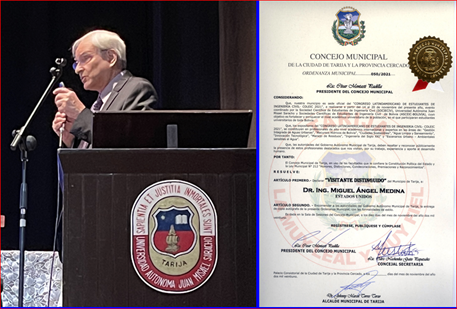
The following morning a national Bolivian TV (UNITEL) news crew interviewed him live at the Hotel Vendimia lobby on the topic of Bolivian water resources and management, as well as potential climate change implications. The broadcast was also presented again that evening on a national news segment.
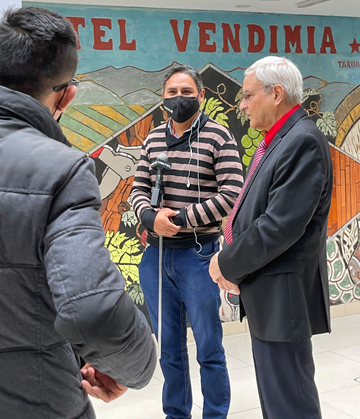
On November 18th, Medina also participated in a forum discussion on climate change implications for the civil engineering and hydrology professions.
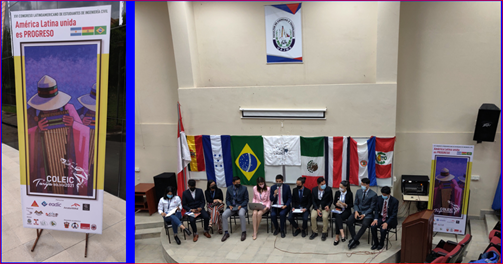
For his presentation, Medina examined the annual maxima series of precipitation at three recording stations in the region: Tarija (1944-2020), Juntas (11976-2020) and Cañas (1977-2020).
Nonstationary time series analysis with the Generalized Extreme Value Distribution (GEV) was applied to the three stations.
Both Tarija and Juntas exhibited a slight decrease in precipitation. However, at a higher elevation over a mountain ridge, Cañas exhibited a substantial increase in precipitation.
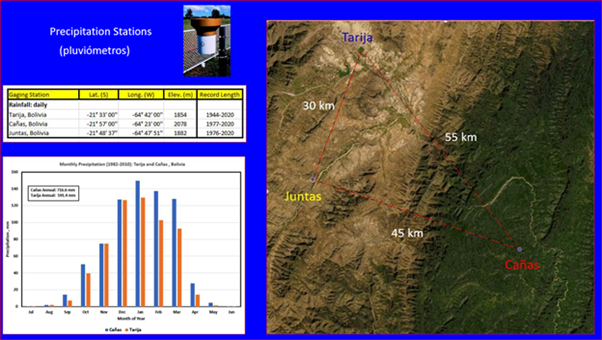

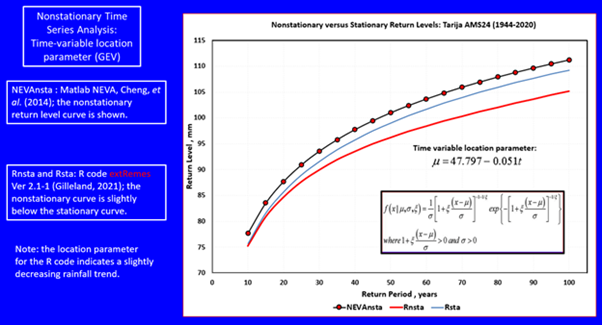
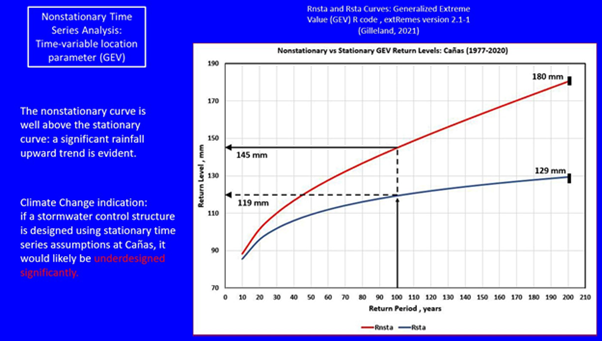
Both deterministic and statistical methods were discussed, as well as surface-subsurface interactions across the hydrologic cycle. The presentation ended with recommendations for infrastructure adaptation to climate change, increased monitoring needs, and a review of current standards. Specific recommendations followed for future training of civil engineers and hydrologists to enhance their professional opportunities.
